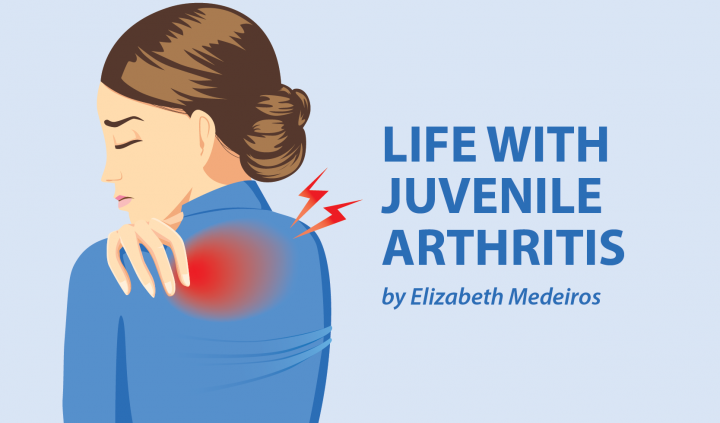These days, everyone seems to be talking about cannabidiol (CBD). You can buy it everywhere, from pharmacies to gas stations, and it comes in many forms, such as drops and gummies. People swear by it to relieve all types of chronic pain, and it is often touted as a cure for inflammation. But what does this mean for kids with juvenile arthritis?
While the Arthritis Foundation recently published CBD guidance for adults, there is no mention of CBD use by children. Experts say that while CBD research seems promising, it may be worth waiting to give it to your child until further research is completed to investigate its effects and how it works. Also, CBD is not legal in every U.S. state yet.
Admittedly, I don’t have much experience with this subject. After speaking with my parents, they both agreed that CBD is not something they would have given me as a child. Even as a young adult, I’m hesitant to try it. While we have heard wonderful things about it, CBD isn’t a JA treatment route my family would have been comfortable with for several reasons.
I think our reasons should be considered if you are wondering if CBD is right for your child:
1. Buyer beware
You never quite know what you’re getting because CBD is still unregulated. You may see cheap oils at a gas station, but do you really trust it? While high-quality, lab-tested CBD is available, it’s costly. Price would’ve been a huge barrier to my family.
2. Medication interactions
According to the Arthritis Foundation, CBD has the potential to interact with corticosteroids, naproxen, tramadol, and other medicines frequently used to treat arthritis and other conditions. Throughout the years, I’ve used many of those treatments, so CBD would not have been an option for me.
I cannot emphasize enough that you need to talk to your child’s doctor if you are considering giving your child any herbal supplement, not just CBD. Just because something is labeled as natural does not mean it’s automatically safe to take, especially for a child. You never know if the dose may mess with a medication they already take, or if it may harm them in another way.
3. It’s not a replacement for treatments
No one likes the idea of giving their child medication, and many people like the idea of using CBD instead of medicine because it seems more natural and safe. But the Arthritis Foundation clearly states that cannabidiol is not a substitute for disease-modifying therapies, which help to prevent joint damage.
For kids, not getting proper treatment can cause altered growth. So even if your child’s doctor gave you the green light to try CBD, it’s essential to keep them on an effective JA treatment.
I am finished growing, but joint damage is still a huge concern for me. So, for now, I’m focusing on making sure the medications I use are working. And if I choose to use CBD one day, it will be one part of my treatment plan.
4. We don’t know a lot about it
While we have some research about how CBD affects adults with arthritis, we don’t have any studies highlighting its use for JA. The lack of research is worrying to my family and me. While I might give more consideration toward using it now that I’m older, it still concerns me.
But I may change my mind one day
While it may be a good option for some, CBD would not have been an option that was practical for my family. At the moment, it’s not even something I would consider giving myself as a young adult. That said, I am not in any way opposed to others using CBD to treat their pain. In fact, I’d be open to possibly trying it in the future.
I’m quite excited to see what studies reveal in the coming months and years about how it may help us cope with pain or relieve inflammation. Maybe the research will change my mind!
***
Note: Juvenile Arthritis News is strictly a news and information website about the disease. It does not provide medical advice, diagnosis, or treatment. This content is not intended to be a substitute for professional medical advice, diagnosis, or treatment. Always seek the advice of your physician or other qualified health provider with any questions you may have regarding a medical condition. Never disregard professional medical advice or delay in seeking it because of something you have read on this website. The opinions expressed in this column are not those of Juvenile Arthritis News, or its parent company, BioNews Services, and are intended to spark discussion about issues pertaining to juvenile arthritis.

